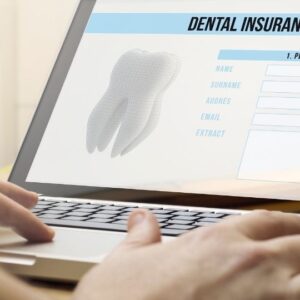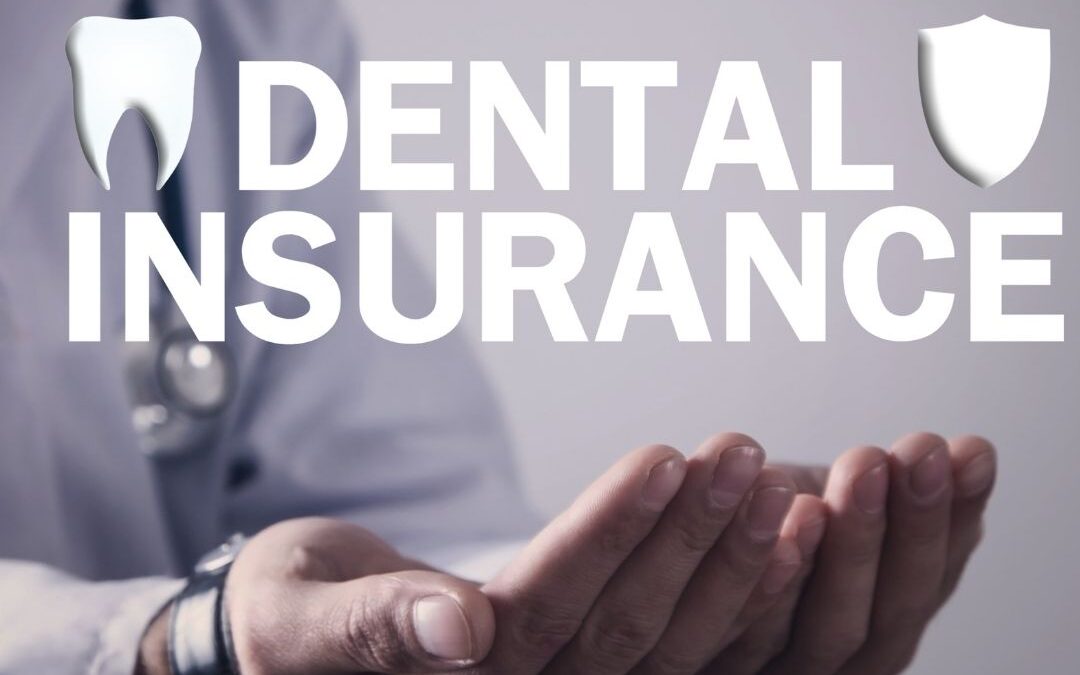When it comes to dental insurance, many people are a bit conflicted. Not everyone feels that spending the money for a monthly premium to insurance providers is always cost-effective. And, for some, this could be true.
The fact is that not everyone needs dental and vision insurance. At least, not yet.
However, as we get older, get married, and have children, the need for a dental plan or insurance, for example, becomes more pressing. And, of course, we want the best dental insurance we can afford. This is true when we are looking to purchase any type of health, dental, and vision insurance coverage.
So, when it comes to dental insurance needs, how can we determine the best dental plan or insurance? And how can we make purchasing dental insurance easier?
Purchasing A Dental Plan Isn’t Always Required
If you are looking to buy a dental plan or insurance because you don’t have an employer offering it as a benefit, you should be aware of alternatives. Dental insurance may not be the most affordable option in some situations, even if you need extensive dental work.
According to the National Association of Dental Plans (NADP), approximately one in four Americans do not have dental insurance. And, among those Americans that are over 65, almost half have no dental coverage.
So, does this mean you don’t need to purchase a dental plan or insurance?
Not quite. But, in some instances, there may be viable alternatives.
According to Consumer Reports,
“About two-thirds of people who do have insurance get it through their job-. If it’s offered to you, it almost always makes sense to take it because employers subsidize the monthly premiums and can negotiate lower rates for dentists in their network. The employee contribution toward the premium is generally pretty low.”
If, however, you do not have an employer option for a dental plan or insurance, and you either cannot afford monthly premiums in addition to co-pays, etc., there are approaches you can take to get the care you need, but in a way that is a bit more cost-effective for you.
Some Alternatives to Purchasing Dental Insurance Yourself
For example, as Consumer Reports notes, many dentists are
“[O]pen to negotiating prices and often will offer a discount if you pay for a procedure when you get the service. Some dentists offer in-office dental plans for people without benefits. Patients pay a small monthly fee and get basic care for free and discounts on other services.”
Also, you can look into joining a dental savings plan, also known as a dental discount plan. These are membership programs, where you pay $80 to $200 a year to get access to a network of dentists who offer discounts. These discounts require that you pay the entire cost of a rate negotiated between the dentist and the referring company, usually between 10 to 60 percent of the normal cost.
This means you could save from 40 to 90 percent on your treatment. And a typical plan comes without annual limits, as well as shorter waiting periods for plan activation.
And one other tip for this type of insurance alternative: If you’re a veteran and have a service-connected disability, you may be eligible for free comprehensive dental care from the Department of Veterans Affairs (VA). Other veterans can usually purchase dental plan at a reduced rate through VA-approved dental insurance providers.
Making Purchasing Dental Insurance Easier
For most Californians, if their employers do not offer dental plans, they will need to purchase their own coverage. The typical person goes to the dentist at least twice a year, primarily for cleanings and checkups. However, most of us go more often.
According to statistics from the CDC, about 65 percent of adults aged 18 and over visit their dentist each year, and about 86 percent of children aged 2 to17 years go every year. And many of us go for much more than a checkup.
Depending on the dental procedure done, costs can average from $300 to $3,000. If, as often happens, two or three family members need a procedure done during a given year, total dental costs can add up to more than $10,000 easily.
Dental insurance, then, becomes essential.
- One tip is to check out your ACA-compliant family healthcare coverage for a dental plan.
- Another good point is to look for a plan that offers in-network discounts for using network dentists.
Most major health insurance carriers offer dental plans to supplement their health care coverage. These include Aetna dental plans and Anthem Blue Cross dental plans, for example. California residents have other options, and one of the best tips for making the purchase of insurance easier is to get professional help.
Get Professional Help for Purchasing Your Insurance
J.C. Lewis Insurance has been a local, family-owned firm based in Sonoma County since 1979, and our team of expert brokers offers individual and family insurance plans.
In addition, we provide small business and individual health insurance plans from only the leading health insurance carriers that are licensed to do business in California.
Along with being an experienced and professional health insurance broker, J.C. Lewis is licensed and certified by each of these insurance carriers. This means we can offer coverage to California individuals, families, and small group employers and Medicare supplemental and prescription drug plans for seniors.
Whether you’re looking to purchase dental, vision, and health insurance for your employees or for you and your family, you probably have several questions and concerns.
At J.C. Lewis Insurance Services, we welcome your questions about insurance coverage, and you can be confident that we will help you find the right solution.

FAQ Section: Simplifying Dental Insurance
1. What are the alternatives to purchasing dental insurance?
- There are several alternatives to traditional dental insurance, especially if you don’t have coverage through your employer. You can negotiate prices with your dentist, consider in-office dental plans, or join a dental savings plan for discounted services. Veterans with service-connected disabilities may even be eligible for free dental care through the VA.
2. How can I make purchasing dental insurance easier?
- Making purchasing dental insurance easier involves a few key steps. Firstly, explore ACA-compliant family healthcare coverage that includes dental plans. Secondly, opt for a plan that offers in-network discounts, potentially saving you money on dental procedures. Lastly, consider seeking professional assistance from experienced brokers like J.C. Lewis Insurance, who can guide you through the process and help you find the right coverage for your needs.
3. Why might I not need to purchase dental insurance?
- Not everyone may need to purchase dental insurance, especially if they have other viable options or minimal dental needs. For instance, if your employer offers comprehensive dental coverage, it’s usually wise to take advantage of it. Additionally, some individuals may find negotiating prices with their dentist or joining a dental savings plan more cost-effective than traditional insurance.
4. What are some key considerations when purchasing dental insurance?
- When purchasing dental insurance, it’s essential to consider factors like your frequency of dental visits, the anticipated cost of procedures, and whether your preferred dentist is in-network. Additionally, look for plans that offer comprehensive coverage for routine check-ups as well as major procedures, ensuring you’re adequately protected in various scenarios.
5. Are there any cost-saving strategies for dental care?
- Yes, there are several cost-saving strategies for dental care beyond traditional insurance. Negotiating prices with your dentist, joining a dental savings plan, or exploring free or discounted options for veterans can significantly reduce your out-of-pocket expenses for dental procedures.
6. What should I look for in a dental insurance plan?
- When evaluating dental insurance plans, prioritize factors like coverage for routine check-ups, coverage for major procedures, network discounts, annual limits, and waiting periods for plan activation. Additionally, consider the reputation and reliability of the insurance provider to ensure you’re getting quality coverage.
7. How often should I visit the dentist?
- According to CDC statistics, about 65% of adults and 86% of children visit their dentist annually. However, the frequency of visits may vary depending on individual dental health needs. It’s generally recommended to visit the dentist at least twice a year for routine check-ups and cleanings to maintain optimal oral health.
8. Can I negotiate prices with my dentist for dental procedures?
- Yes, many dentists are open to negotiating prices for dental procedures, especially for patients without insurance. Some dentists may offer discounts if you pay for services upfront or may have in-office dental plans that provide basic care at reduced rates. Negotiating prices directly with your dentist can help make dental care more affordable.
9. What are dental savings plans, and how do they work?
- Dental savings plans, also known as dental discount plans, are membership programs that offer access to a network of dentists who provide discounted services to members. By paying an annual membership fee, you can access significant discounts on dental procedures, typically ranging from 10% to 60% off the normal cost.
10. Why is dental insurance essential for most individuals and families?
- Dental insurance is essential for most individuals and families because dental care costs can add up quickly, especially for routine check-ups and unexpected procedures. With dental insurance, you can mitigate the financial burden of dental care and ensure that you and your family receive the necessary treatments to maintain good oral health.

